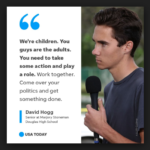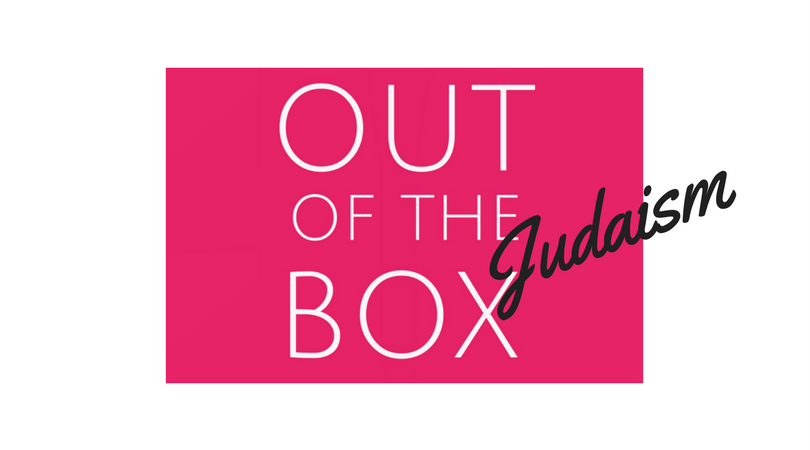In the aftermath of the school shooting last week in Parkland, Florida, I’ve been thinking about the students, faculty, and families directly effected by this tragedy. The loss of life is deeply sad, and so is the fact that those who survived will forever be scarred.
No child should go to school wondering whether a shooter will prevent them from coming home. No teacher should leave for work wondering whether that will be the day they teach biology or use their body as a shield. No parent should wonder if their morning goodbye was their final goodbye.
Impressively, it is the students of Marjory Stoneman Douglas High School and other teenagers across the country who are leading the way to change. These brave teenagers need the adults in their lives to help them make this progress, as well as to heal and feel safe. Here are three things that adults can do for the children in their lives following this crisis:
Know your audience.
A tragedy like this is jarring and scarring for everyone who hears about it. But not everyone hears about it, and not everyone needs to. As frightened as you are for the safety of children and the general public, remember that little children will understand even less and be afraid even more. Be careful not to discuss this or look at images around kids who are still lucky enough to be having an unadulterated childhood.
For older children, or younger children who have already heard, it’s important to say something, and you don’t need to have all the answers. Acknowledging the situation and being available to listen goes a long way. Validate their feelings, and let them steer how long or short the conversation will be. And if you’re not their parent or teacher, put them in the same category as the younger children mentioned above, and don’t raise the issue with them. There are still ways you can help.
Model compassion.
One mass shooting is one too many, especially in a school. And rather than one, we have had dozens. This one seems to be the tipping point for change. The teenagers are stepping up where adults have failed them. But they still need adults. They need adults to make the changes, to stand by them, and to model compassion and action on this issue, and across the board.
In this week’s Torah portion, we read about the garments that the priests wore when performing ritual. When the community saw the priests dressed in their ceremonial garb, they had certain expectations. Adults are wearing virtual ceremonial garb all the time. We are being watched by our children all the time – whether our own offspring or children in the community. And in that position, we need to make sure that our actions are sending the message of compassion.
Praying with your feet: On March 14th, students will stop everything at 10am for 17 minutes in a #NationalSchoolWalkout in memory of the 17 victims of the Parkland shooting. You don’t need to be a teenager or in a school to participate and show your solidarity. On March 24th there is #MarchforourLives in Washington.
Putting your money where your mouth is: Whether you choose to support Moms Demand Action for Gun Sense in America or give to the official GoFundMe campaign for Parkland families (watch out for other fundraisers that are not official), or donate to a political candidate* who is going to vote for safer gun laws, there are plenty of opportunities to make contributions of any size. If your kids are old enough, let them help you decide where to donate.
Being nice: Keep with – or step up – your practice of kindness. An act as simple as holding the door for someone, letting someone pass you in traffic, verbally acknowledging someone asking for money, or donating your old clothes to someone in need lets kids see that there are millions of acts of kindness every day. It is a subtle reminder of the consistent goodness in the world.
Teach and live The Blessing of Both
The day after the shooting at Marjory Stoneman Douglas High School I was a guest in a kindergarten class. I got to be there during a birthday celebration and I was there when Zero the Hero came to the room in honor of the 100th day of school. The five- and six-year-olds were chatting and enjoying their birthday popsicles when a “superhero” with the number 100 boldly on her cape came skipping in. They were in awe.
The children proudly showed off their 100 Day Museum in which they had large Ziploc baggies filled with 100 of several items – Scrabble letters, paper clips, pennies, Legos… They celebrated this special holiday by counting to 100, doing 100 exercises in groups of 10, and getting a prized 100th Day of School pencil from the masked mathematician who only appears on this special day. The kids had a wonderful day – and so did I.
While my mind was definitely on the tragedy in Florida, it wasn’t the only thing on my mind. We truly had a joyful and safe day. My heart aches for those who didn’t. I worry about the safety of my children and all children. But that wasn’t the only thing I was doing. The joy and celebration are just as real as sadness. The good doesn’t replace the bad, but neither does the awful replace the good. They are both there. The Blessing of Both.
Esther Goldenberg is the founder of Out-of-the-Box Judaism. She helps families and individuals incorporate Judaism into their lives in a way that’s meaningful to them. Follow Out-of-the-Box Judaism here and listen to the podcast.

* A candidate for the House of Delegates in Maryland had a bingo fundraiser in which an AK-15 was a raffle prize for the winner. Allison Berkowitz is running against him. This is information, not an endorsement.

Excellent as usual Esther, I always learn from your wise words.